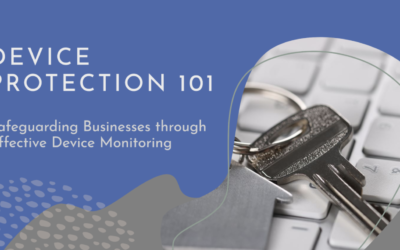MSPs provide an excellent option for companies looking to improve their overall IT performance without having to invest heavily in internal staff. However, not all MSPs are equal. As the market for Managed Services continues to grow, the pressure on MSPs to meet rising consumer expectations from new performance standards and technologies has surpassed what many Managed Services providers are capable of delivering.
Having been in the Managed Services market for decades, our team knows the common gaps that can lead to poor perceived MSP performance and how to overcome these challenges. In this blog, we cover our list of the top reasons companies leave their MSP for alternative methods of support.
Top 4 Reasons Companies Leave Their MSP
1. Lack of Attention to Proper Security & Compliance Requirements
Security breaches are in the news daily. Because of this, security demands on small and medium sized businesses has never been greater. In the past, most small and medium sized organizations often considered it enough to install a firewall or endpoint solution. But these simple measures aren’t always effective against modern cybersecurity threats. Today’s threats are a constant reminder to all businesses that malicious actors can find ways into a system. In other words, anyone could be a target.
Protecting core data and technology is the leading reason companies seek out MSPs in the first place. Customers expect guidance and support in developing a layered security approach that detects and stops the vast cornucopia of threats. However, many MSPs are struggling to keep up with these increased demands. According to research, nearly one in four SMBs (24 percent) has already changed MSPs in the aftermath of a cyberattack.
2. Lack of Transparency
All businesses today are reliant on technology to operate. This is why many businesses turn to MSPs to support their systems. But business leaders can no longer just “trust their IT guy.” The stakes are too high. Tangible data must be available about the status, availability, and security a business’ IT environment.
Leaders must be able to see work their MSP does on their behalf and understand the state of their systems. Additionally, business leaders need to be able to tie this data back to the cost of outsourcing their IT in the first place. Yet, poor communication has been consistently listed as one of the top reasons that companies leave their MSP.
It’s important to note that lack of data doesn’t mean lack of work. Often it means lack of the customer’s awareness into work done on their systems. Maybe an MSP provides a customer with recommendations for new solutions, options, and technologies that will improve their performance. As a result of this recommendation, uptime and availability improve. However, without data showing improvement, the customer will struggle to tie the changes to any added value to the business.
3. Recurring Issues
One of the promises made by nearly every MSP in the market is the provision of proactive support. However, incidents often will find their way through. Well-run MSPs leverage a combination of comprehensive monitoring systems, sophisticated incident databases, and good client documentation to facilitate the MSP getting to the root of an incident the first time. Recurring issues is a common sign that an MSP is not tracking issues properly.
4. Poor Response Time & Customer Service
Long wait times are consistently one of the top complaints businesses have with their MSP. Businesses hire MSPs to come in and make sure that their technology is taken care of. When something goes wrong, customers expect that their Managed Services provider will work to resolve the issue as quickly as possible. A simple network outage could cost a small business thousands of dollars. When an MSP is overstretched, response times and time-to-resolution often suffer as a consequence. Poor response times to critical issues often leaves businesses looking for alternative methods of support.
All these reasons boil down to three underlying causes: quality, value, and preparation. When choosing a MSP to support your business and technical operations, make sure that they are aware of how to avoid these common shortcomings.



